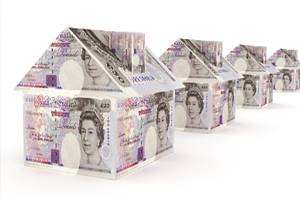
The Chancellor of the Exchequer, Britain’s Minister for the Economy, has introduced a radical change to the system of taxation applied when buying residential property in the UK. The move comes as part of the so-called “Autumn Statement”, in effect a mini-Budget announced midway between annual budgets. This Autumn Statement is seen as being especially significant, as the next General Election in the UK is due in May next year.
It is the change in taxation when purchasing a home that has grabbed the headlines. The tax is known as “stamp duty”. Until now, the amount of stamp duty the home-buyer would pay was calculated as a percentage of the total price, even though there was a sliding scale according to which the tax would rise.
So, until now there was no stamp duty to pay on properties bought for less than £125,000; but once you reached this figure you would pay one per cent stamp duty on the whole sum. That rose to 3% on the whole sum at £250,000; 4% at £500,000; 5% at £1m and 7% at £2m.
What the Chancellor has now done is to introduce a system similar to that of income tax, whereby you pay the higher percentage only on that portion of the sum above each threshold. So now those buying property costing up to £250,000 will pay 2% stamp duty on the portion of the cost from £125,000 to the purchasing price. For houses costing between £250,000 and £925,000, the buyer will pay 2% on the portion between £125,000 and £250,000, and 5% on the portion above that. Up to £1.5m, stamp duty will be 10%; and it will be 12% on anything above that.
In his Statement, the Chancellor said that 98% of house-buyers would be better off under this scheme. It is the 2% who purchase more expensive properties who will have to pay more. The average house price in the UK is currently £275,000, and someone paying that would now save £4,500, compared to the old system. However, someone paying £2.1m for a house would now have to pay an extra £18,750 in stamp duty.
So although the change in the system has been welcomed – it had been called for by many for a long time, and a similar system was already due to be introduced in Scotland next April – and most first-time buyers in particular will benefit significantly, it will be wealthy buyers who will typically pay more. And there will be a disproportionately higher number of people in London paying more stamp duty, as the price of houses in the capital continues to rise faster than elsewhere.
But even if some people will be unhappy about having to pay more stamp duty on their expensive property, the Chancellor also had good news for those wishing to invest in the UK. He declared that the UK is the fastest growing economy in the G7, and that the growth forecast in 2014 is now 3%, up from the 2.7% he predicted in March. The Treasury’s current forecast for growth in 2015 is 2.4%, with growth of between 2.2% and 2.4% over each of the following four years. Inflation is running at 1.5%, and is predicted to fall to 1.2% in 2015. And half a million new jobs have been created in the UK in 2014.
Should you wish to receive recommendations, ask questions or get in touch with our experts, please email us info@orcap.co.uk or call +44 (0) 207 725 6900


